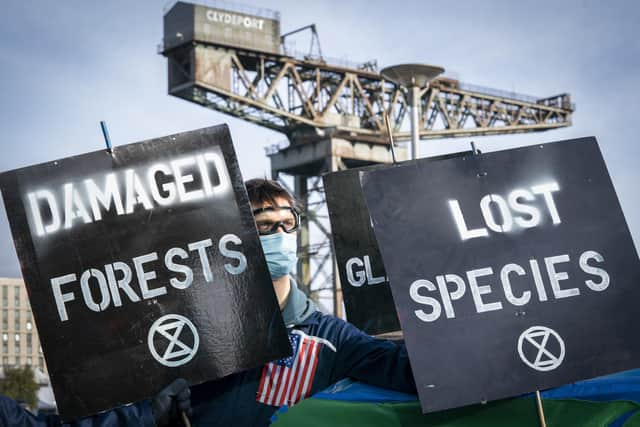Climate change UK: Tories and Labour at war with themselves as cost of living competes with climate crisis
Following the Tories triumphant defence of Uxbridge and South Ruislip with the party only losing 10,000 votes, Britain’s green agenda is now seemingly up for debate.
Where before there was consensus, the successful weaponisation of Ulez to criticise the Labour party has put green policies, once bulletproof across the political divide, back on the chopping block.
Advertisement
Hide AdAdvertisement
Hide AdClimate sceptic MPs, previously on the fringes, now smell blood, with Tory MP Jonathan Gullis one of many to claim the ban on news sales of new petrol and diesel cars by 2030 “isn’t going to be deliverable”. Michael Gove has decried “climate crusaders”, but insisted the deadline is “immovable”, while development minister Andrew Mitchell changed his answer multiple times in one interview, claiming he “can’t prophesy the future”.


Downing Street sources say Rishi Sunak is open to reviewing the commitment, adding ministers are scrutinising all plans to hit net zero by 2050 “in light of some of the cost-of-living challenges”. Given the 2050 target was made legally binding by the High Court, watering down policy will be easier than scrapping.
On the other side, MPs on the climate APPG have written to Mr Sunak warning “backing away from green policies would be catastrophic for the economy”, while Simon Clarke, an ally of former prime minister Liz Truss, says moving away from green policy would damage the economy.
This is the political situation Britain now finds itself in, with Tory MPs on both sides of the argument briefing to try and sway a Government struggling to balance the books and maintain its own commitments.
Things aren’t much better in Labour land, with Sadiq Khan’s backing of Ulez landing him in hot water with a Westminster group quick to blame him for Labour’s failure to win in Boris Johnson’s old seat.
The party’s deputy leader, Angela Rayner, was one of those quick to criticise the policy, claiming the result “shows that when you don't listen to the voters, you don't win elections”. Her fear seems to be that voters may tell pollsters they care about green politics, but will vote against measures that impact their finances.
This has seen Labour, a party that has promised to go further and faster than the Tories on green policy, suddenly begin to question itself, with MPs urging a rethink.
Despite being nowhere near the Uxbridge by-election, in the days after there were genuine fury from Sir Keir Starmer’s allies towards Ed Miliband, shadow secretary of state for climate change and net zero, suggesting it was his approach to green policies that had cost them.
Advertisement
Hide AdAdvertisement
Hide AdThis came just weeks after a briefing from someone in the shadow cabinet that Sir Keir claimed to “hate tree-huggers”, and amid rumours Mr Miliband could be out in a reshuffle, or have his powers diminished by the leadership.
Then, amid all the infighting, is the issue of campaigning, with green initiatives criticised for political benefit. Consider Labour’s plans to block all new domestic oil and gas developments, an undeniably green policy, and one that won’t close existing processes. The Tories have claimed it will create jobs in Russia.
Everyone wants to address the climate crisis, but everyone is worried announcing measures to do so will stop them winning the next election.
Comments
Want to join the conversation? Please or to comment on this article.
